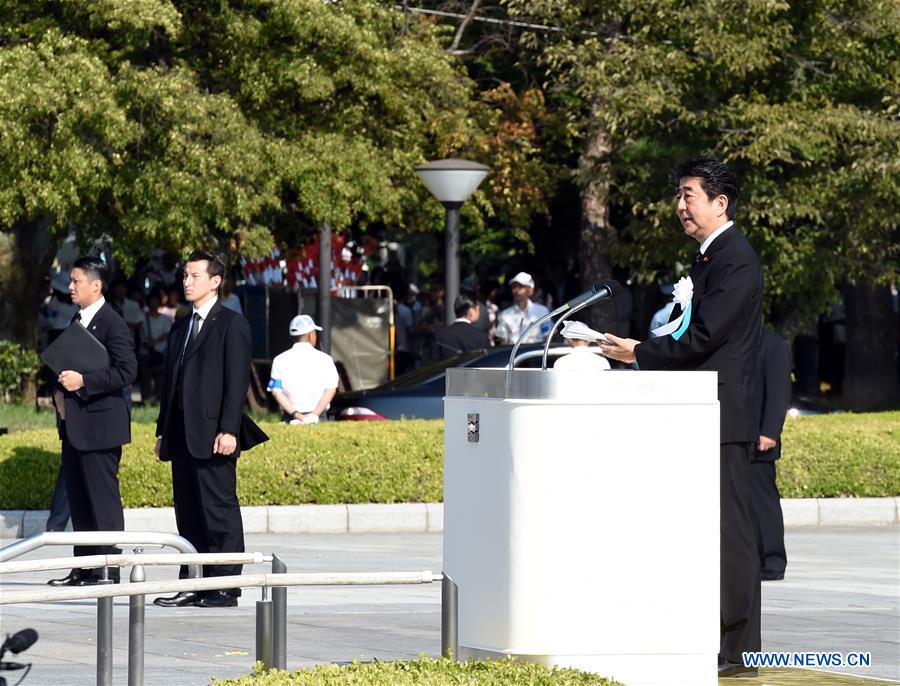Japan marks day atomic bombs fell


Japanese officials routinely argue that they oppose atomic weapons but the nation's defense is dependent on the nuclear umbrella of the United States.
Survivors of the bombing known as hibakusha were also in attendance at the annual ceremony.
Some of the hibakusha, many now aged over 82, have been working with the International Campaign to Abolish Nuclear Weapons on a treaty they hope will be adopted by the United Nations.
However, Japan has not become a signatory to the Treaty on the Prohibition of Nuclear Weapons, which came into effect in July 2017. UN Secretary-General Antonio Guterres said in his message during the ceremony that Hiroshima's legacy is one of "resilience" and sought continued moral support from the hibakusha for efforts in promoting the ban of nuclear weapons.
But as with years past and, perhaps, for those in the future, while Japan has a tendency to focus solely on the inward tragedy that nuclear and chemical warfare has inflicted on it, many experts on the matter hope that Japan will also take the time to remember that its own involvements in World War II had also brought immeasurable suffering.
























